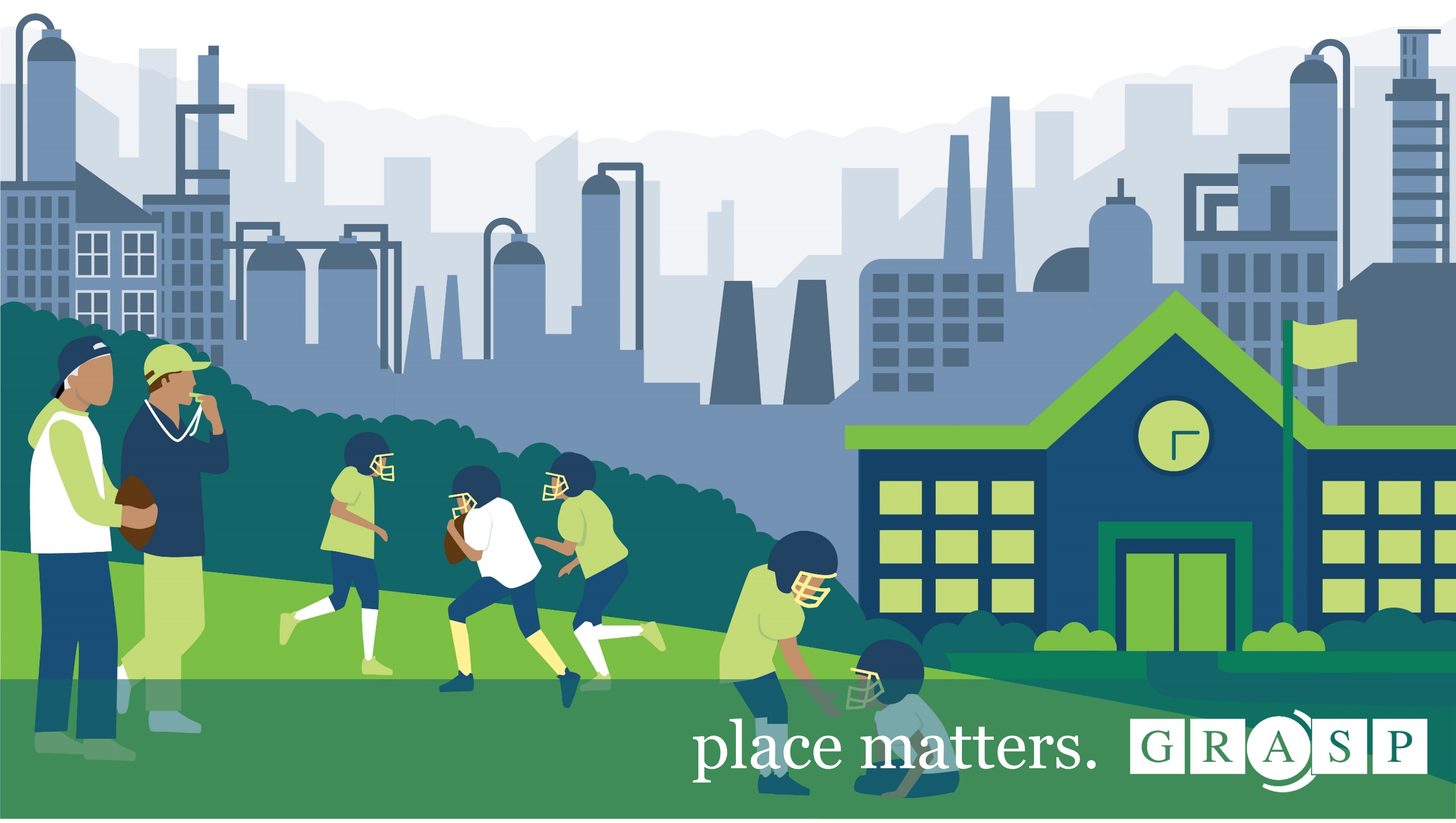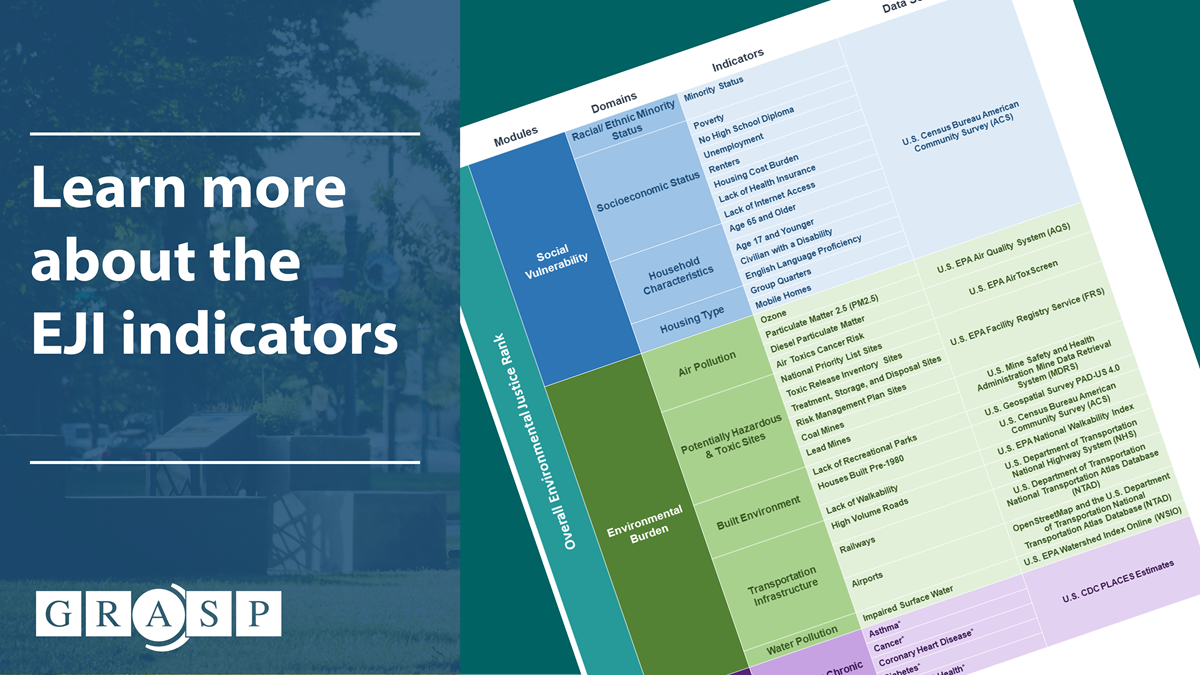At a glance
The Environmental Justice Index (EJI) is the first national, place-based tool designed to measure the cumulative impacts of environmental burden through the lens of human health and health equity. The EJI delivers a single rank for each community to identify and map areas most at risk for the health impacts of environmental burden.

Overview
Environmental justice means the just treatment and meaningful involvement of all people, regardless of income, race, color, national origin, Tribal affiliation, or disability, in agency decision-making and other Federal activities that affect human health and the environment so that people:
- Are fully protected from disproportionate and adverse human health and environmental effects (including risks) and hazards, including those related to climate change, the cumulative impacts of environmental and other burdens, and the legacy of racism or other structural or systemic barriers
- Have equitable access to a healthy, sustainable, and resilient environment in which to live, play, work, learn, grow, worship, and engage in cultural and subsistence practices
The Environmental Justice Index uses data from the U.S. Census Bureau, the U.S. Environmental Protection Agency, the U.S. Mine Safety and Health Administration, the U.S. Geological Survey, OpenStreetMap, the U.S. Department of Transportation, and the U.S. Centers for Disease Control and Prevention to rank the cumulative impacts of environmental injustice on health for every census tract. Census tracts are subdivisions of counties for which the Census collects statistical data. The EJI ranks each tract on 36 environmental, social, and health factors and groups them into three overarching modules and ten different domains.
EJI Explorer Interactive Map
EJI Data Download
EJI Technical Documentation
EJI Community Engagement
Questions or feedback?
To ask a question about the EJI, or to provide feedback, please contact the EJI Coordinator at eji_coordinator@cdc.gov.
Media inquiries may be sent to placeandhealth@cdc.gov.



